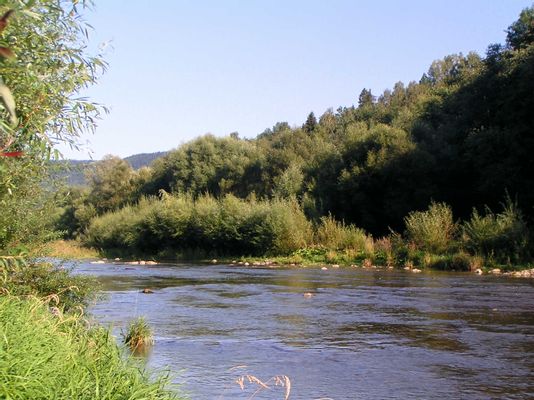This Polish town is home to a UNESCO-listed salt mine with underground chambers, sculptures, and a chapel carved entirely from rock salt.
Wieliczka, a small town near Krakow, is home to an enormous underground salt mine. When you descend hundreds of feet below the surface, you'll find yourself in a world of ornate chambers, underground lakes, and intricate sculptures - all carved from salt. This UNESCO World Heritage Site takes you on a journey through Poland's mining history and artistic achievements. You can explore vast chambers like St. Kinga's Chapel, see salt statues of historical figures, and even float on dark, subterranean lakes.
Exploring the Underground Labyrinth
The Wieliczka Salt Mine stretches for over 178 miles across nine levels, reaching depths of 1,073 feet. As a visitor, you'll explore about 2 miles of tunnels and chambers on the upper three levels. Your journey begins with a descent down 350 wooden stairs to reach the first level at 210 feet underground. From there, you'll wind through tunnels past salt-carved statues, chandeliers, and even entire chapels as you learn about the mine's 700-year history. The temperature remains a constant 57°F year-round, so bring a light jacket.
Salt Sculptures Throughout the Mine
Throughout the mine, you'll encounter dozens of statues and bas-reliefs carved entirely from rock salt by generations of miners. Many depict historical figures, saints, and scenes from Polish folklore. One of the most detailed is a salt statue of Pope John Paul II in St. Kinga's Chapel. Take time to examine the intricate work - from facial expressions to clothing folds - all painstakingly chiseled from salt blocks. You can even lick the walls to taste the salty flavor (though it's not encouraged).
St. Kinga's Chapel: An Underground Cathedral
St. Kinga's Chapel, located 330 feet below the surface, is one of the mine's largest chambers. Miners carved out this vast space over 30 years in the early 20th century. Its walls are adorned with biblical scenes in bas-relief. Salt chandeliers hang from the ceiling, casting a warm glow. An altar and life-size statues of saints complete the cathedral-like atmosphere. The chapel still hosts occasional concerts and masses. Its excellent acoustics make it a memorable venue for music performances.
Subterranean Lakes and Chambers
As you explore deeper into the mine, you'll encounter several underground lakes with still, dark waters reflecting the lights. The largest is in the Erazm Barącz Chamber, which spans over 3,000 square feet. You can take boat rides on some of the lakes. The Stanisław Staszic Chamber has a 118-foot ceiling, while the Michałowice Chamber features elaborate wooden support structures resembling a subterranean forest.
Health Benefits and Spa Treatments
The mine's microclimate, with its high humidity and salt-infused air, has therapeutic effects for respiratory conditions. A rehabilitation and wellness complex is located 443 feet underground, offering salt therapy treatments. Even a few hours spent in the mine can improve respiratory system function. The complex includes an underground hotel where you can spend the night surrounded by salt.
Planning Your Visit
You can join guided tours in English throughout the day, lasting about 2-3 hours. Wear comfortable walking shoes, as you'll be covering about 2 miles on foot. Photography is allowed but requires an extra fee. After your tour, you can eat in the underground restaurant or buy souvenirs made from salt. Book your tickets in advance, especially during peak summer months, to avoid long waits.
Getting There from Krakow
Wieliczka is located about 10 miles southeast of Krakow. You can reach it by taking a train from Krakow Główny station to Wieliczka Rynek-Kopalnia station, which is a short walk from the mine entrance. The journey takes about 20 minutes. Alternatively, you can take a bus from the Krakow central bus station, which takes about 40 minutes. Many tour companies also offer day trips from Krakow that include transportation and skip-the-line mine entry.
A Brief History of the Mine
Salt extraction in Wieliczka began in the 13th century, making it one of the world's oldest salt mines in operation. For centuries, salt was a valuable commodity, often called "white gold." The mine played a crucial role in the Polish economy until commercial mining ceased in 1996. Today, it serves as a unique museum and tourist attraction, preserving centuries of mining techniques and artistic traditions.


















